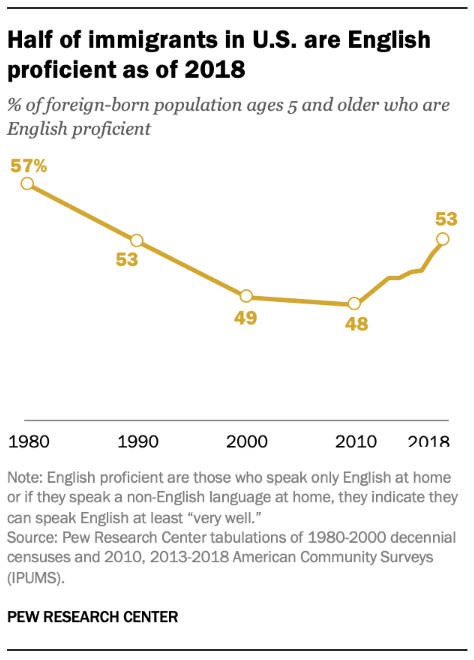On a typical sunny day, one San Antonio resident works through the heat from his very own food truck, selling torta after

torta to the community. Just 10 years ago, he was working any random job he could find. Despite his hard work, employers took advantage of the fact that he was an immigrant with a family to take care of. Today, however, he takes pride in his thriving family, including his eldest son sophomore Alejandro “Dani” Gomez De Hoyos, and his successful business.
Including the De Hoyos family’s food truck, an estimated more than 30% of businesses owned in San Antonio are owned by immigrants, according to New American Economy. However despite their considerable contribution to the economy, the wellbeing of future immigrants and current residents in our region is being endangered due to the inability to have an efficient border in El Paso. The odds of this percentage of immigrants expanding is getting increasingly unlikely as the influx of immigration has been deemed too much for border cities to handle with the lack of funding that they have.
Housing, language transition, and more struggles that new immigrants face
In 2020, Title 42 was used to decrease the number of immigrants crossing the border in order to limit the global health crisis, COVID-19. However, the order was set to expire Dec. 21, 2022 which would have allowed thousands of immigrants to cross through El Paso without available support such as housing and food assistance. With that deadline approaching, Mayor Oscar Leeser, of El Paso, declared a “State of Emergency” back in December due to the predicted increasing number of immigrants sleeping on the street in freezing weather. In most cases, the problems for new immigrants do not stop after those first few nights.

“My dad would come crying sometimes from work because everyone would make fun of him or bully him (because of his English),” De Hoyos said regarding his dad’s first few months working in the United States.
While De Hoyos found the language transition to be easier for him, due to the fact that he was so young when he came to the United States, this transition is not the same for everyone.
Recalling her experience transitioning in the United States, freshman Sara Espinosa said, “I did start learning English when I was in Mexico, but when I got here, I had to relearn all that I had learned because it was so different.”
The language transition is one of the many struggles that new immigrants have to overcome following their first nights. Everyone’s experience is different. For example, those in need of food and everyday supplies sometimes struggle to find local providers of such necessities.
Back in December, Fox News reported, “Susan Goodell, CEO of El Pasoans Fighting Hunger Food Bank, told Fox News the organization is down to about five days’ worth of food for the general community.”
Extending Title 42
On Jan. 12, the United States announced that it would extend Title 42’s influence, blocking more immigrants from coming to the United States to seek asylum. While some are pleased with this decision due to the limited funding that El Paso and neighboring towns have to provide for incoming immigrants, many key figures in San Antonio argue that extending Title 42 is not the way to fix this issue.
In response, Congressman Joaquin Castro pointed out that the federal government gave border and immigration transit cities $2 billion recently, and that was perhaps a step in a better direction than simply kicking people out after working so hard to get in.
“Right now, the only people that can get a visa over there are the rich rich people of Mexico,” De Hoyos said, “…the fact that we have to run multiple different businesses just to get a visa… no normal person can legally… it’s just really hard.”
Captions: (1) Some of De Hoyos’ dad’s tortas ready to be served, courtesy of De Hoyos.
(2) An analysis of English “proficient” immigrants, courtesy of Pew Research Center.
Efectos del Sistema de inmigración en la ciudad de Tránsito de San Antonio
En un día soleado típico, un residente de San Antonio trabaja en su propio camión de comida, vendiendo torta tras torta a la comunidad. Hace solo

10 años, estaba trabajando en cualquier trabajo al azar que pudiera encontrar a través de empleadores que se aprovechan del hecho de que era un inmigrante con una familia para cuidar. Hoy, sin embargo, su familia, incluyendo a su hijo mayor de segundo año Alejandro “Dani” Gómez De Hoyos, lo está haciendo mejor que nunca mientras es un orgulloso dueño de un negocio.
Una investigación de 2019 reveló que más del 30% de las empresas en San Antonio son propiedad de inmigrantes. Esto hace que sea fácil asumir que aún más de los trabajadores en San Antonio son inmigrantes también. Sin embargo, el bienestar de inmigrantes futuros y residentes en curso en nuestra región de Tejas está en peligro debido a la incapacidad de tener un sistema fronterizo eficiente en El Paso. La probabilidad de este porcentaje creciente se está volviendo cada vez más improbable ya que la afluencia de inmigracion se ha considerado demasiado para que las ciudades fronterizas la manejen.
Vivienda, transición lingüística y más luchas que enfrentan los nuevos inmigrantes
En 2020, Título 42 se utilizó para disminuir la cantidad de inmigrantes que cruzan la frontera con el fin de limitar la crisis sanitaria mundial, COVID-19. Sin embargo, Titulo 42 estaba programado para expirar en el 21 de dic. de 2022 lo que habría llevado a miles de inmigrantes a cruzar a través de

El Paso sin asistencia disponible. Con esta fecha límite que se acerca, el alcalde de El Paso, Oscar Leeser, declaró un “estado de emergencia” previamente en diciembre porque la creciente cantidad prevista de inmigrantes durmiendo en la calle en un clima helado. En la mayoría de los casos, los problemas para los nuevos inmigrantes no se detienen después de esas primeras noches.
“Mi papá venía llorando a veces del trabajo porque todos se burlaban de él o lo intimidaban (debido a su inglés)”, dijo De Hoyos sobre los primeros meses de trabajo de su padre en los Estados Unidos.
Si bien De Hoyos encontró que la transición lingüística era más fácil para él, debido al hecho de que era tan joven cuando llegó a los Estados Unidos, esta transición no es la misma para todos.
Recordando su experiencia de transición en los Estados Unidos, la estudiante de primer año Sara Espinosa dijo: “Empecé a aprender inglés cuando estaba en México, pero cuando llegué aquí, tuve que volver a aprender todo lo que había aprendido porque era muy diferente”.
La transición lingüística es una de las muchas luchas que los nuevos inmigrantes tienen que superar después de sus primeras noches. La experiencia de cada persona es diferente. Por ejemplo, aquellos que necesitan alimentos y suministros cotidianos a veces luchan por encontrar proveedores locales de tales necesidades.
En diciembre, Fox News informó: “Susan Goodell, directora ejecutiva de El Pasoans Fighting Hunger Food Bank, le dijo a Fox News que la organización se ha reducido a unos cinco días de alimentos para la comunidad en general”.
Prórroga del Título 42
El 12 de ene., los Estado Unidos anunció que extenderá la influencia del Título 42, bloqueando más inmigrantes cruzando a EE.UU. con el fin de buscar asilo. Mientras que algunas personas están contentas con esta decisión debido a la financiación limitada de El Paso y ciudades vecinas tienen para proveer para inmigrantes entrantes, muchas personas clave en San Antonio argumentan que extender Título 42 no es la manera para solucionar este problema. El congresista Joaquin Castro incluso señala que el gobierno federal dio a las ciudades fronterizas y de tránsito de inmigracion $2 mil millones recientemente, y eso fue quizás un paso en una mejor dirección que simplemente echar a la gente después de trabajar tan duro para entrar.
“Ahora, las únicas personas que pueden obtener una visa allí son los ricos ricos de México,” dijo De Hoyos, “… el hecho de que tenemos que dirigir múltiples negocios diferentes solo para obtener una visa… Ninguna persona normal puede legalmente … Es realmente difícil.”
